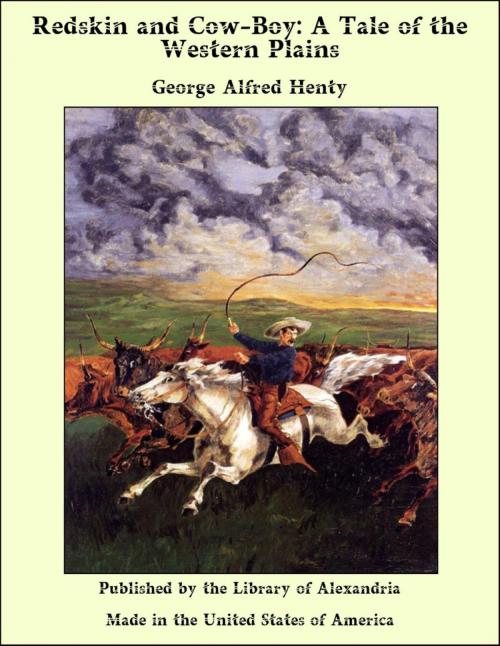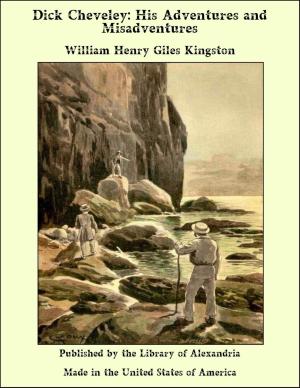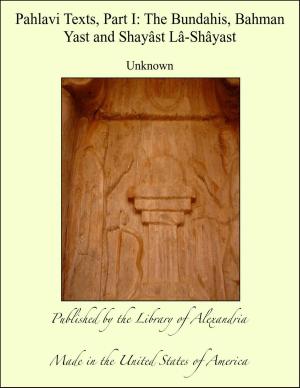Redskin and Cow-Boy: A Tale of the Western Plains
Nonfiction, Religion & Spirituality, New Age, History, Fiction & Literature| Author: | George Alfred Henty | ISBN: | 9781465600400 |
| Publisher: | Library of Alexandria | Publication: | March 8, 2015 |
| Imprint: | Language: | English |
| Author: | George Alfred Henty |
| ISBN: | 9781465600400 |
| Publisher: | Library of Alexandria |
| Publication: | March 8, 2015 |
| Imprint: | |
| Language: | English |
Cedar Gulch was, in 1851, a flourishing camp. There had been some good finds by the first prospectors, and a rush had of course followed. In many cases first discoveries proved illusive, but it was not so at Cedar Gulch. The ground turned out well, and although no extraordinary finds were made, the average was good all over the bottom, and there were few who were not doing fairly well. The scene was a busy one. Several hundreds of men were hard at work on the flat, which in winter was the bed of a wide stream, but which in summer was a mere thread of water among the rocks, scarce enough for washing purposes. Everywhere were piles of stones and rubbish that had been brought up from the shafts; men toiled at windlasses; others emptied the buckets as they came up into swinging troughs or cradles; others again kept these supplied with water, and swung or rocked them, taking off the large stones that the motion brought to the surface, while the slush and mud ran out at the lower end. New-comers moved about watching the work with eager eyes, wishing that they had had the luck to get there among the early arrivals, and to take up a claim, for every foot of ground far down the valley had already been occupied, and there was now no getting into a claim except by purchasing a share or altogether buying out the present holders. One of the claims that was doing best was held by three men who had worked in partnership for the last two years, and who had been among the first to arrive at Cedar Gulch. They were known among the others as English Bill, Sim Howlett, and Limping Frank. Sim Howlett was perhaps the leader of the party. He had been one of the earliest gold-diggers, and was a square, powerfully built man. He was a man of few words, but the words when spoken were forcible. He was by no means quarrelsome, but was one whom few cared to quarrel with, even in a place where serious quarrels were of constant occurrence, and where revolvers cracked so often that the sound of a fray excited but little attention.
Cedar Gulch was, in 1851, a flourishing camp. There had been some good finds by the first prospectors, and a rush had of course followed. In many cases first discoveries proved illusive, but it was not so at Cedar Gulch. The ground turned out well, and although no extraordinary finds were made, the average was good all over the bottom, and there were few who were not doing fairly well. The scene was a busy one. Several hundreds of men were hard at work on the flat, which in winter was the bed of a wide stream, but which in summer was a mere thread of water among the rocks, scarce enough for washing purposes. Everywhere were piles of stones and rubbish that had been brought up from the shafts; men toiled at windlasses; others emptied the buckets as they came up into swinging troughs or cradles; others again kept these supplied with water, and swung or rocked them, taking off the large stones that the motion brought to the surface, while the slush and mud ran out at the lower end. New-comers moved about watching the work with eager eyes, wishing that they had had the luck to get there among the early arrivals, and to take up a claim, for every foot of ground far down the valley had already been occupied, and there was now no getting into a claim except by purchasing a share or altogether buying out the present holders. One of the claims that was doing best was held by three men who had worked in partnership for the last two years, and who had been among the first to arrive at Cedar Gulch. They were known among the others as English Bill, Sim Howlett, and Limping Frank. Sim Howlett was perhaps the leader of the party. He had been one of the earliest gold-diggers, and was a square, powerfully built man. He was a man of few words, but the words when spoken were forcible. He was by no means quarrelsome, but was one whom few cared to quarrel with, even in a place where serious quarrels were of constant occurrence, and where revolvers cracked so often that the sound of a fray excited but little attention.















